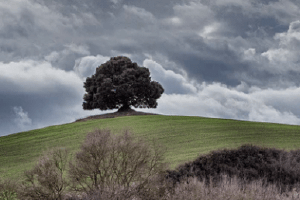Welcome to the Salt and Sage Books Spotlight series! We believe that by honoring each other’s voices, we’re able to turn creativity into community, and change the world through story.
In this spotlight series, we welcome you into our creative community by inviting you to meet our editors and expert readers, and to hear a little of their own story, in their own words.
What do you do with Salt and Sage?
I am primarily a sensitivity reader, but I also do line editing, developmental editing, and proofreading.
What do you love about reading and editing?
Just the sense of making something better. It’s very satisfying to look at a piece of work at the end and know that I tangibly helped to improve it.
Also, it means I get to read a lot of interesting stuff!
What drew you to Salt and Sage?
I had never come across a literary services company that made sensitivity reading such an important part of its work, so I instantly thought ‘let me see what I can help them with’. Sensitivity reading is still quite new to the industry, so I’m really excited to be part of an organisation that is pushing it as an expected part of the editing service.
Where do you live, and what do you like about that?
I live in London in the UK, and I like that there’s something happening all the time here. I also like the anonymity of it, and that if I want to go and walk around and just think, people will largely leave me to it. There’s also really diverse, which is something I value a lot. It’s a big contrast to my home town in the north.
How do writing and editing figure into your daily life?
At time of writing, I’m working a three-month contract, so my day at the moment doesn’t look much different to anyone else’s 9 - 5 in an office. When this contract finishes in October, I’ll go back to quite a structured schedule - for a freelancer, anyway!
I organise my days very tightly around whatever needs prioritising; I have a diary for all my deadlines and a weekly planner on my wall for what’s important in the next seven days.
So one day I might spend a morning doing comms consultation for a client and the afternoon on my own writing; another day it might be a morning to sort out my Patreon and an afternoon editing a table-top game. But I always have something going on.
What’s your writing process like?
I’m definitely a pantser. I tend to start with a thought or a line of dialogue and go from there; usually the ending will hit me when I’m about halfway through.
What’s your favorite resource for editing?
Honestly? My own instincts. I’ve read so much writing of all different types - I’ve worked with not just fiction and poetry, but business writing, academic writing, technical writing - that I can quickly tell if something isn’t quite right. After that, it’s just a matter of putting my finger on it.
What’s something you love about one of your favorite books?
I’m currently re-reading Robin Hobb’s Realm of the Elderlings series. It’s hard to pick out just one thing that I love, because it’s possibly one of the most influential pieces of work I’ve ever looked at, but I think it’s how everything interacts and intertwines with each other. The more you read, the more you understand about the previous books. It’s incredibly clever.
What about writing scares you?
How much I might accidentally reveal about myself. There have been many times when I’ve reread something, and suddenly gone ‘oh, that character’s my Dad!’ And then realised that the whole story is about something very personal. Luckily, only I (and maybe a couple of others) could tell.
What thing about sensitivity reading and editing do you feel people need to know?
With sensitivity reading, what I definitely want people to know is that my report back about what you may have gotten wrong is not a rebuke: it’s a learning opportunity, and you chose to be open to that when you approached me. Don’t be annoyed when you’re not perfect - nobody is.
What are you passionate about, that you wish more people knew about?
Indie table-top roleplaying games (TTRPGs). Not Dungeons and Dragons, though that’s what most people will think of (if they think of anything at all). It is actually my last choice for a TTRPG if I want to play something, and I certainly wouldn’t recommend it for a beginner. It’s complex, there’s too much maths, and it’s focused around combat - and the size of it all can be incredibly daunting.
I much prefer smaller, lesser known games that have simple rules and are about relationships and interaction. Monsterhearts is a favourite of mine - in fact, anything that is described as ‘Powered by the Apocalypse’ is worth a go. When they’re done well, TTRPGs can be an incredible shared storytelling experience.


















